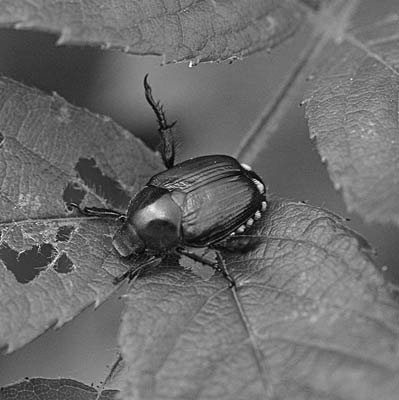Observing Your Site’s Unique Growing History
Garden Logs and (Maybe) Blogs

Ihad at least one diary as a youngster, complete with a little gold key. I wrote things in it, in the great tradition of girls locking away their secrets from their clueless parents and nasty brothers. But, frankly, I couldn’t keep it up. It seemed like a waste of time to write everything down; I’d never forget it. Well, we do forget, and just the act of writing it down helps solidify the memory, for me anyway. My kids seemed to be constantly engaged in various assignments in “journaling” through their school years, and lately it seems like everyone has so much to say that they must each start their own blog and then contribute to a score more. I still don’t have the time. But, there is some value in keeping a log of observations about your garden and being able to refer back and infer certain things from your past experiences.
Mostly, since my vegetable garden is pretty small, I can remember where I planted the zucchini last and rotate in a cabbage relative to forestall the next round of root nematodes. But if I really got serious about jotting down a few salient facts each year, I might be better equipped to maximize my harvests and thwart certain pests and diseases. I might be able to remember to cover up the mustard greens before the cabbage moths arrive to lay the eggs that subsequently hatch into ravenous caterpillars. If I had recorded when that influx of aphids on the newest leaves of the climbing rose usually occurred, I could have planned to release some ladybugs in time to save most of the new buds. I could even calculate when my bean crop would be at its peak, and plant early or late enough to avoid its happening while I was away visiting my family.
By noting when certain insect pests normally arrive in your garden, you may also be able to find ways to break their cycle. Many insects and other pests spend part of their life underground. Turning the soil at just the right time can expose their larvae (of Japanese beetles, for example) or eggs (of grasshoppers, slugs, and snails, to mention just a few) to desiccation and predators like birds. These simple practices can greatly reduce the impact on your prized plants.
If your garden log reveals that the worst corn earworms always seem to arrive in July, you can even plan your main crop to mature before or after that time. Jot down also how successful the “set” or overall harvest of a particular variety was. Throughout the years, you will be able to fine-tune not only the best times but the best types to plant. Generalized information for all these factors can be found in books, magazines, and on the Internet, but your garden site is unique, so the conditions of your soil and microclimate will be different. In just a few seasons of observation, you may find that you have not only increased your output, but reduced the amount of time you need to spend fending off pests and babying along reluctant plants.
There are lots of interesting ways to record your observations on paper, from custom garden journals offered by seed companies and others, to the tried-and-true little composition books with the black and white cardboard covers. I have a friend who has a small stack of these that record everything about her garden from the day it began at her newly built house a number of years ago. Some pages have leaves taped in them, others have notes stuck between them or stapled in place. By the time each notebook is nearly full, it usually needs a rubber band to keep it all together. You will decide what types of information you want to record and remember; this is a purely personal endeavor. Pencil and paper are great for making sketches and plotting your beds, but you may find it just as easy to start your journal on your computer. And this latter option will allow you to insert snapshots of your successes and failures. You can’t take it out into the garden with you, but it won’t have dirty fingerprints on its pages either.
Try a garden log for a year and see what you can learn from your own observations. Then, if you really crave connecting with the World Wide Web, go ahead and join the thousands of other garden bloggers.



